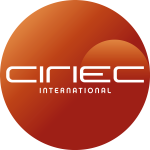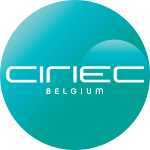
CIRIEC intenational (International Centre of Research and Information on the Public, Social and Cooperative Economy) is a non-governmental international scientific organization which currently has 13 national sections and 3 collective members worldwide.
Its objectives are to undertake and promote the collection of information, scientific research, and the publication of works on economic sectors and activities oriented towards the service of the general and collective interest:
• action by the State and the local and regional public authorities in economic fields (economic policy, regulation);
• public utilities;
• public and mixed enterprises at national, regional and municipal levels;
• the so-called “social economy” (not-for-profit economy, cooperatives, mutuals, and non-profit organizations); etc.
CIRIEC has an original feature since it develops activities of interest for both managers and researchers active in serving the general or collective interest. CIRIEC aims at being an international meeting point and a locus of research and reflection networking, without lobbying for any particular interests.
CIRIEC’s International Congresses bring together some 500-600 participants: economic, social and political responsibles, enterprises and organizations managers, researchers worldwide. The first congress was held in 1953 in Geneva, and since it is held every two years in a country where CIRIEC has a national section.

CIRIEC-Belgium is :
– a non-profit research association and is one of the national sections of CIRIEC international.
– a place for meetings and exchanges, thanks to the many events organized for practitioners and scientists.
– a documentation center specialized in public, social and cooperative economy and oriented towards the general and collective interest with:
° a hundred international scientific journals
° more than 4,000 books (reports, reports, thematic files, acts, …) with national and international scope in the many fields of public, social and cooperative economy and activities of general interest
° a multilingual collaborative knowledge platform (20,000 documents available to members)
° a scientific watch
It ensures the permanent secretariat of the international association since 1957, and has as collective members organizations (federal and regional public and mixed enterprises, administrations , intercommunal, health mutual, hospitals, cooperatives, mutual insurance companies, trade unions, non-profit organizations, provinces, cities and municipalities , …) and scientific experts.

Imbedded for two centuries in the heart of an ancient city which was the capital of a State – the Principality of Liège-, the University of Liège is part of a long historical and intellectual tradition whose anchor dates back well before its foundation in 1817 as a State University under the Dutch system. That same year establishes in the Liège basin, the English industrialist John Cockerill, the first steel and metallurgical plants, which ensured the prosperity of the region, making it in the 19th century the second world industrial power.
University open to the world: the University of Liège is in contact with a thousand institutions in the world and welcomes 23,000 students. 23% of them are of foreign origin, representing 134 nationalities on all continents.
“A university in motion, changing societies.”: Knowledge is not solely produced at universities, but they have a responsibility to integrate, evaluate and give knowledge meaning in a collective interest. Hence, universities increasingly find their role in digital societies, where speed of data creation (the raw materials of knowledge) is accelerating at an impressive rate. ULiège’s mission is to be an integral part of this creative and innovative dynamic and to be a driver and positive contributor to change in our world.

